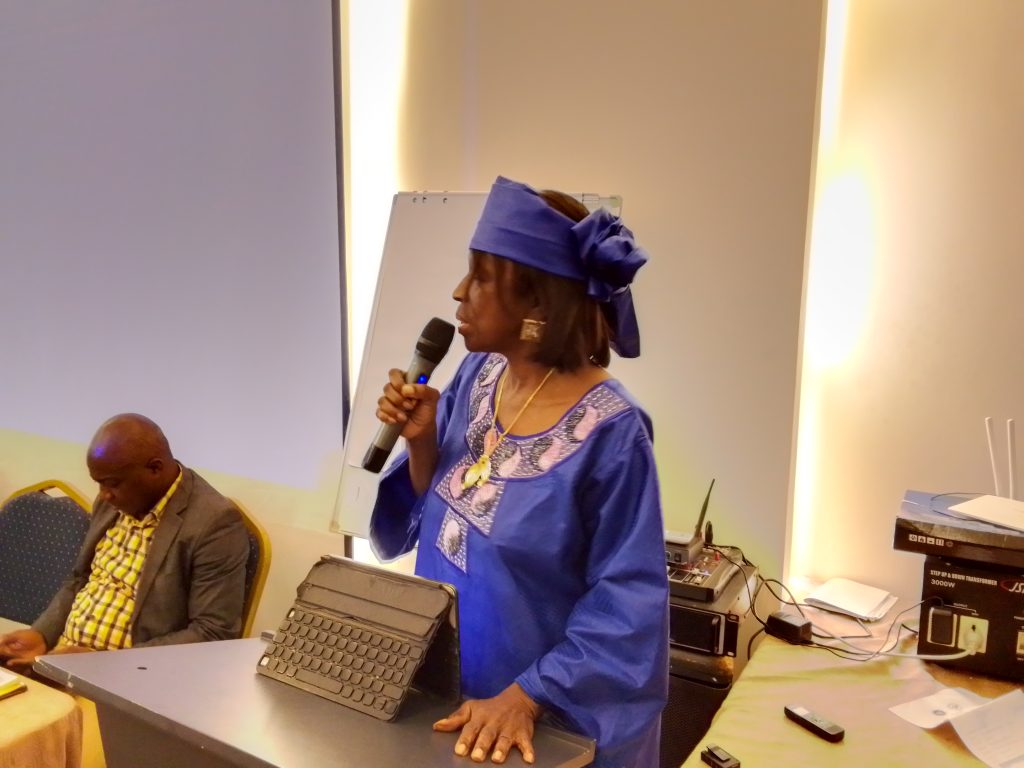By Yusufu S. Bangura

Planning Minister officially launching the local councils development plans
The Minister of Planning and Economic Development (MOPED), Madam Kenyeh Barlay, officially launched the Local Council Development Plans for six districts on Thursday, November 16, 2024.
The launch event was held at the Country Lodge Hotel in Freetown.
Those plans were developed under the Institute for Governance Reform (IGR)’s Building Accountability Systems through Empowered Communities (BASE) Project, funded by USAID.
The BASE Consortium Project, spanning 36 months, will implement the plans in Karene, Moyamba, Falaba, Koidu New Sembehun, Tonkolili, and Kono districts.
Delivering the keynote address, Minister Barlay praised IGR and BASE for their leadership in addressing critical development issues.
She expressed the government’s gratitude to USAID, IGR, and BASE for their financial and technical support, emphasizing the importance of collaboration for national development.
“The launch of these plans marks a new era in Sierra Leone’s development journey,” said Minister Barlay. She highlighted the plans’ alignment with the country’s Medium-Term Development Plan and the Sustainable Development Goals (SDGs), particularly SDG 2 on ending hunger.
Barlay also emphasized the integration of the government’s “Big Five Game Changer Agenda,” with the Feed Salone initiative as the flagship program. She noted that this is the first time district priorities have been broken down to align with national development strategies.
Barlay emphasized the inclusive and strategic nature of the plans, which aim to support rural development and provide direction for districts and communities. She stressed the importance of implementation, stating, “A successful plan is determined by its implementation. If it doesn’t create impact, it cannot be considered successful.”

IGR staff, Minister Belay and Council representatives pose for photo
Andrew Lavail, Executive Director of IGR, highlighted the significance of the project in fostering trust between citizens and authorities. “One of the reasons for this project is to build trust between citizens and politicians, not only in Sierra Leone but globally. By helping politicians deliver services and ensuring civil society and the media communicate these achievements, we can rebuild that trust,” he said.
Lavail added that the project introduced a template for local councils to develop their own plans while ensuring alignment with the Ministry’s guidelines.
Dr. Fredline, a key presenter, detailed the development process for the local council plans. She thanked the Ministries of Local Government and Economic Development, as well as the councils, for their hard work.
She emphasized the goals of the BASE Project, which include increasing citizen participation in governance and enhancing local authorities’ responsiveness to community needs.
Dr. Fredline also highlighted key achievements from the project’s first 18 months, including establishing an accountability platform and an LGST website for progress reporting, ensuring women’s priorities are included in development plans.
She outlined the expected outcomes over the 36 months, including improved community stability, increased local council revenue, enhanced trust in local authorities, reduced maternal and child mortality rates, higher incomes for farming households, and better educational outcomes reflected in national exam scores.
The event included a roundtable discussion moderated by Hassan Kallon, where representatives from the six local councils shared their development priorities.
The launch concluded with calls for strengthened coordination, annual reporting on council performances and reforms to boost private sector collaboration with local councils.


